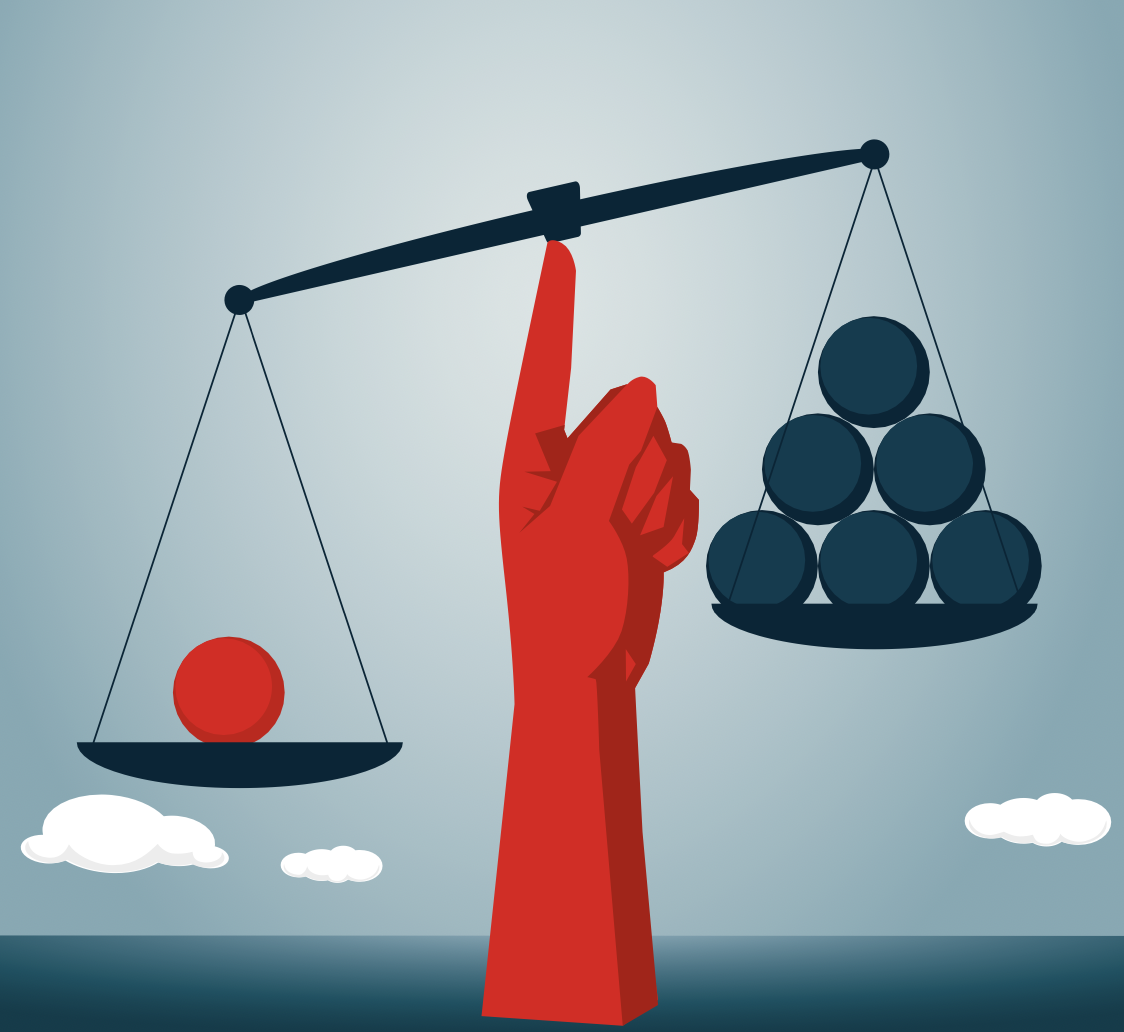By Olev Edur
If your will isn’t put together properly, the result can be that what you want to happen won’t
When it comes to creating a last will and testament, there are many pitfalls awaiting the uninformed. Wills are complex legal instruments requiring that meticulous care be taken to ensure that inadvertent mistakes don’t render the document worthless.
“I’ve reviewed thousands of wills, and I’ve seen thousands of mistakes that people—sometimes even lawyers— make when creating them,” says Les Kotzer, a wills lawyer with 35 years of experience and the author or coauthor of four books on the subject. And, of course, it’s too late to make any corrections after the fact.
If the will isn’t completely clear and correct as to your intentions, or if it contains any ambiguities, the result—at best—can be delays and added costs as courts and lawyers wrangle over the true meaning of what was written. At worst, it could result in the will being set aside entirely and the testator being deemed to have died intestate. In this situation, a government-appointed trustee will step in and disburse the estate according to a strict formula.
Since estates fall under provincial or territorial governance, the exact rules can vary somewhat from one jurisdiction to another, but generally they provide for fixed percentages of the estate’s total asset value to go first to spouses and then to children, without regard for any personal considerations. In the absence of a spouse or children, assets will be distributed to other relatives in a descending list of priority, and any intended bequests to favoured charities or to friends will be disregarded.
In addition, while unintentional errors in wording may not necessarily result in a complete dismissal of the will, they can have results very contrary to what may have been intended.
To help avoid such potential problems, the following are examples of the most common or costly mistakes Kotzer has seen during his career.
1. Assuming you can do it all yourself
“You need to be extremely careful if you plan on doing it yourself,” Kotzer cautions. “I’ve found many mistakes in the majority of cases in which people made their own wills. People assume that they can just write out whatever they intend and everything should be fine. But in a will, every word has a legal meaning, and any ambiguity or incorrect information could render the will invalid. A single wrong word can destroy the document.
“I had one client, for example, who wrote a two-line will stating in part that all his ‘memorabilia’ would go to a particular beneficiary,” Kotzer recalls. “But what does ‘memorabilia’ mean? Does it include the furniture? The car? The dishes? What about the antiques? And he appointed his ‘best friend’ as executor, simply stating that everything would go to that person and to his relatives. But who are all these people? They weren’t identified in the will, so the probate court didn’t know. In another case, the client wrote that his brother was to get all his ‘stuff,’ but what does ‘stuff’ include? Does it include the valuable jewellery that his wife had left to him? Does it include the house?”
In such cases, the result would likely be a determination of intestacy, in which case those friends would get nothing and, unless identified properly, those relatives could get nothing as well. Instead, other parties could receive all of the estate proceeds.
By the same token, failure to get financial advice can have serious adverse consequences, in the form of increased taxes, reduced benefits to loved ones, or both. “When it comes to dealing with the taxation and investment side of things, you should definitely speak to an accountant or qualified financial planner about your wishes and intentions,” Kotzer says.
“Estate tax law is complicated, and mistakes can be very costly.”
2. Failing to update your will
“Wills need to be updated regularly,” Kotzer says. “A will should be treated as a living document that continually reflects your current circumstances. You can’t create a will and then just put it in a box or drawer and forget about it, because your life is constantly changing. You need to review the will with the help of a lawyer every year or two, depending on changes in your life, to ensure that everything is properly worded and that it reflects your current circumstances.
“I had one client who stipulated in her will that the one child who had been a caregiver to her for many years should inherit ‘the house,’” Kotzer says. “When I asked her about this house, it turned out that she had moved from the house identified in the will to a new home several years ago. I told her that she had to update the will, because under the current wording, that child would not inherit the house.”
It’s also important to consider the current circumstances of your beneficiaries. “Your existing will may, for example, provide equal shares to two children, with both shares going to one child if the other passes away,” Kotzer says. “But if the will was drafted in the 1990s, say, when the kids were young, and they’ve since aged, married, and had children of their own, shouldn’t the will provide for the grandkids if one child passes on?
Many people don’t think about this, and those grandkids end up being left out of the will.”
3. Neglecting to put a family law clause into your will if you get divorced
“It’s often said that a second marriage comes with four rings—the engagement ring, the wedding ring, bicker-ring, and suffer-ring,” Kotzer quips. “Second marriages can be extremely complex when it comes to estate planning. You have to give a lot of thought to how you create your will to ensure that your kids don’t lose out on everything. Even if you don’t have kids but have relatives or friends you want to benefit, you must be careful.
It’s common practice in second marriages for each partner to leave everything to the surviving spouse. But if you each have kids from a previous marriage and you pass on, your new spouse can immediately turn around and create a new will cutting your own kids—or your friends or relatives—out of everything.
You need to put a clause into your will specifically safeguarding your intentions for your kids.” The time to be thinking ahead is before the wedding. “If you’re entering a second marriage, you should make a list of everything that’s yours that you’re bringing into the marriage and keep this separate from the marital asset pool,” Kotzer advises. “As long as those assets are maintained separately, they can be disbursed separately, rather than being subject to a matrimonial split of all assets should you divorce again. They can, for example, be bequeathed to your loved ones from the first marriage without regard for requirements relating to the second marriage.”
4. Failing to ensure fairness in estate disbursements
“Equalization doesn’t always mean fairness, and it doesn’t mean there will be no ill will or fighting among the kids or other beneficiaries,” Kotzer says. “If there are two kids, for ex- ample, and one spent many years looking after and doing everything for the deceased while the second sibling moved to the other side of the country and never called or visited, is it fair to give them equal shares? Kids keep mental records of what they have done and been given in the past, and how they’ve been treated, so equality will not necessarily translate into fairness in their minds. And don’t think the kids will just work things out if there’s a problem—they won’t. Lawyers are the ones who work these things out, and they end up costing a fortune. And, of course, as soon as one beneficiary calls in a lawyer, the others must do likewise, and that’s the end of their relationship.”
Kotzer points out that in many cases, the estate may include a single large and indivisible asset such as a house or cottage, and it may be financially difficult to ensure fairness or equity, depending on what’s appropriate, when that large asset outweighs the balance of the estate. Similarly, taxation can create undesired imbalances if, for example, one beneficiary inherits the house tax-free and another inherits an RRSP or a RRIF of equivalent value but must pay a big tax bill when it is deregistered (as must be done in the deceased’s final tax return).
In such cases, the tax-free proceeds of a life-insurance policy could be used to restore the desired balance, either by covering any tax liability that might arise for the estate or by supplementing the inheritance of a beneficiary who might receive less than the desired amount.
5. Providing inadvertent access to the will
“Another big mistake people make is providing an entree for a secondary beneficiary to dispute the will,” Kotzer says. “For example, I had a client, a woman with two grown children—the daughter lived with her and looked after her whenever it was needed, while the son moved far away and didn’t stay in touch. She decided to give the daughter 90 per cent of her estate and the son 10 per cent. Big mistake.
Giving the son 10 per cent made him in effect a shareholder of the estate, so he had the right to examine the estate and create problems every step of the way to probate. In this kind of situation, it’s far better to give secondary beneficiaries a fixed-dollar gift, so they get their inheritance and walk away with that. Sometimes kindness can come back to haunt you.”
6. Appointing the wrong person as executor
“That a person is a chartered accountant doesn’t mean he or she is the best person for the role of executor,” Kotzer says. “An executor needs to understand the people involved and the whole family dynamic as well as the financial side of things.”
A close family friend may be familiar with the people side, but there are still finances to consider, and in such cases, dual executorship may be advisable—a friend and a financial professional. But such arrangements can carry their own complications.
Accordingly, the appointment documentation should be very clear as to the roles of each executor and to the way any disagreements will be resolved. Should one executor hold veto power over any decisions, for example, to avoid costly time-consuming stalemates? Or should one executor be empowered in a consultative capacity only?
It must also be borne in mind that the would-be executors’ circumstances can change, particularly if they were chosen many years ago.
People move away, pass on, or become disabled. As a result, it’s important to appoint backup executors—although this may not always be necessary with professional appointees, who may have associates who can pick up the reins if necessary.
7. Trying to include a complete inventory of all your assets
“Don’t try to list everything you own—a list almost guarantees that some things will be forgotten, and that can lead to all kinds of problems in settling the estate,” Kotzer says.
“Stuff always gets forgotten, so most lawyers will now suggest a single generic clause using the word ‘residue’ to cover all assets not specifically mentioned elsewhere in the will.”
Special personal effects can still be mentioned specifically in the will. “If, for example, a child bought you a valuable piece of jewellery or art and it has special sentimental value, don’t let it be given to another child,” Kotzer says. “Mention it separately in the will, along with any other items meriting special treatment, and then use the ‘residue’ clause to accommodate everything else.”
8. Making one child trustee over a minor sibling’s inheritance until the younger one reaches maturity
“This enables the older child to have complete control over the younger child’s finances,” Kotzer says. “That can be a guaranteed recipe for fighting and for lingering resentments.” At worst, it could also translate into the younger child not getting their full share of the estate—grounds for life- long enmity. It’s far better to name a different trustee.






